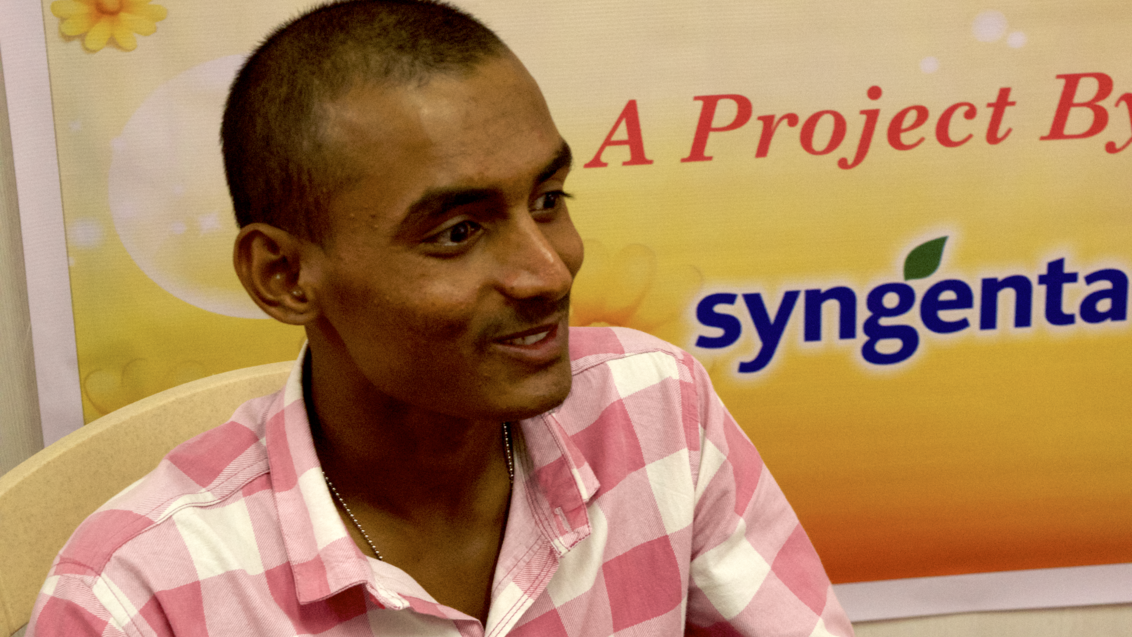Bringing the youth back to the land

Syngenta Foundation in India has been implementing successfully a range of models designed to improve the farming practices and livelihoods of resource-poor smallholders. Read the story of one young rural Indian who followed the Agriculture Technology Assistant programme.
Ankush comes from a family of farmers. Together with his parents, the 22-year-old works the family’s five-acre holding in India’s western Marahashtra state, growing cotton and soybean.
Ankush’s father is a graduate with an active interest in modern agriculture, and he encouraged Ankush to study for a BSc in Agriculture. While he loved his studies, Ankush wanted to gain the practical skills and specific knowledge that could make his farm more productive and profitable, so his professor advised him to look into Syngenta Foundation India’s Agricultural Technology Assistant programme*.
The programme focuses on upgrading the skills of rural youth, offering a 45-day residential training course in best agronomy practices alongside business skills and personal development. It aims to make rural youth readily employable and to enable them to earn a premium for their skills and knowledge.
The course transformed Ankush’s understanding of soil and pest management, appropriate use of inputs and best practices in irrigation. Hailing from Marathwada, an area known for water scarcity and frequent droughts, Ankush quickly grasped the benefits of micro-irrigation and its impact on income, yield and the environment. He wanted to share his knowledge with other farmers and to implement it on his own land.
He opted for a job as a field officer in corporate social responsibility for a multinational company, helping sugarcane farmers use water more efficiently and improve their yields. Using savings from his salary he has managed to set up a drip irrigation system for 1 acre of his land, and in the process has inspired other rural youths from his village to take a fresh look at agriculture. Many are now focusing on gaining the specialized skills to improve their family farms, helping to both reverse the trend of urban migration among the young and to offer the promise of agricultural development.
*The ATA program runs in seven centers across India: Nanded, Jawhar, Pune, Ahmednagar, Hyderabad, Kalahandi and Ranchi. The primary reason for starting an ATA training initiative was to train a cadre of young people from rural areas to be ‘agri-entrepreneurs’, who can provide services to smallholder farmers. Students follow an intensive 45-day residential program, emerging as competent and readily employable ATAs, with skills relevant to their particular region. The model is built on the assumption that from a group of 25 ATAs, approximately 7 or 8 will be shortlisted for the Agri-Entrepreneur (AE) program. Efficient “last mile” agents/extension workers are vital to the effective implementation of development projects. More info about the project here
